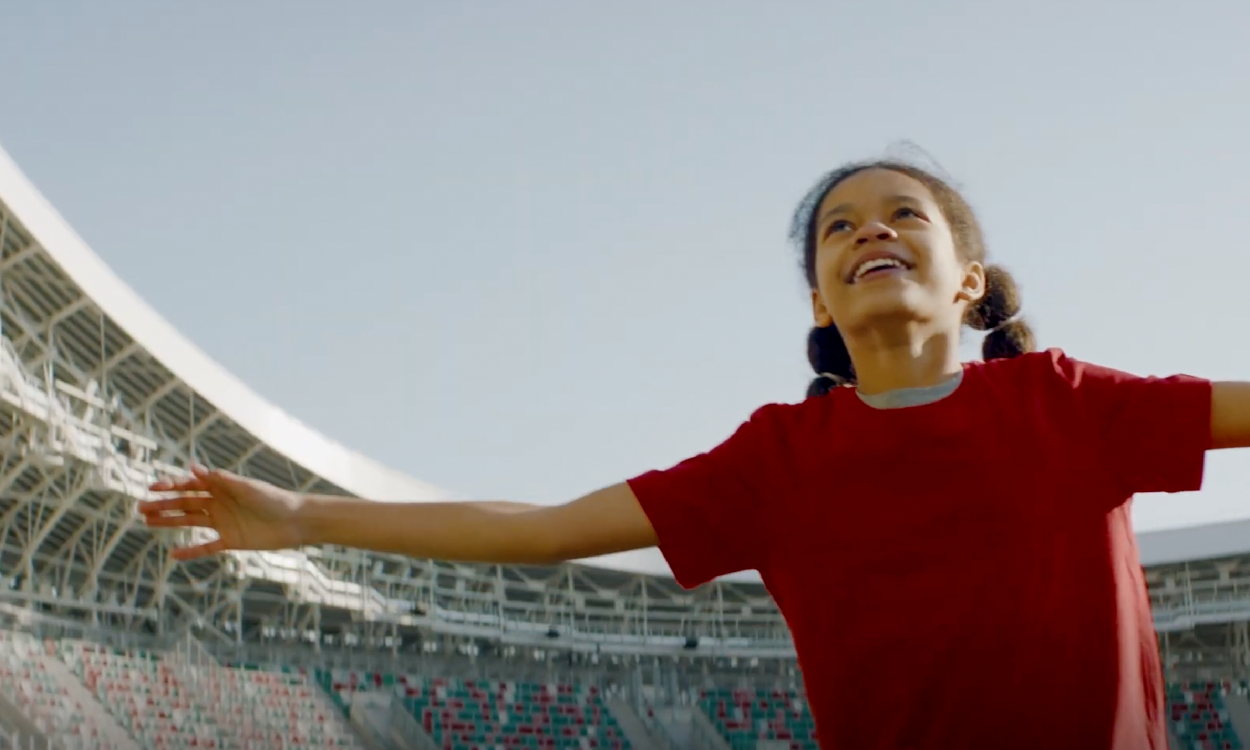
The Centre for Sport & Human Rights Push for Child Rights Protection for FIFA World Cup 2026
May 26, 2023
As part of a new initiative, Beyond Sport Network Member, the Centre for Sport and Human Rights (CSHR) is working to ensure that child rights are at the core of the FIFA World Cup 2026 legacy. CSHR CEO Mary Harvey announced a partnership with Aspen Institute at its Project Play Summit this week to introduce the Children's Bill of Rights in Sport to the FIFA World Cup host cities. The ‘groundbreaking’ project will see the Centre work with host cities in Canada, Mexico and the United States to protect and promote child rights. This project is its latest effort surrounding the men's tournament since 2020.
The 2026 World Cup is the first major sporting event to require human rights commitments from host countries during the bid process, which was seen as a historic milestone in changing the way major sporting events are planned and delivered to create a legacy. CSHR released a report last year in collaboration with international law firm Clifford Chance, which provided a view across numerous human rights factors addressed by the candidate cities. Factors included anti-discrimination, human rights-related environmental impact, workers' and housing rights. The report also recognized proposed initiatives to advance human rights at a city-by-city level, highlighting commitments in the respective candidate city bids.
This year, CSHR is working with four host cities: Los Angeles and the New Jersey/New York City region in the US; Guadalajara in Mexico; and Toronto in Canada to provide training, resources and participation in cross-city peer networks, which will eventually be offered to all 16 host cities across North America. Through this project, the Centre intends to create a model for integrating child perspectives and experiences in the planning, delivery and legacy of major sports events. The Centre will introduce Children's Bill of Rights in Sports as a resource to the cities in the project. Developed by the Aspen Institute through its Project Play initiative and with a working group of human rights and sports policy experts, the Bill is designed to create a shared cultural understanding that all youth should have the opportunity to develop as people through sports.
The project will engage children, caregivers, sports organizations, governments and Local Organizing Committees. It will also educate people on child rights in relation to sporting events, increase individual and collective commitment to children's rights and build organizational capacity within host cities to safeguard and measurably improve those rights.
“Sporting events have a major impact on the daily lives of children. When large events come into communities, it is important to ensure that children’s rights are protected and that children have a say in decision-making. Safeguarding children from harm is fundamentally important before, during and after major sports events,” stated CSHR.
Some of the risks to children in relation to mega sporting events include discrimination, violence against and among children and youth, lack of safe sport and recreation and privacy for children when reporting violence or abuse. According to UNICEF, this also includes the human trafficking of child athletes who can be exploited financially or sexually, negatively impacting physical and mental health and wellbing.
CSHR is on a mission to advance a world of sport that promotes human rights by generating awareness, building capacity and delivering impact. As part of its Convergency 2025 strategy, the Centre is addressing urgent challenges and trends in sport and human rights by offering support and dialogue that creates lasting value in the sector. It provides thought leadership, innovation and knowledge within sport and human rights and support in the strengthening of systems and practices within sport as it aligns with human rights.